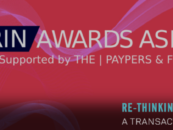
Fintech Regulation: New Law to Impact Mobile Wallet Operators in Singapore
by Fintech News Singapore October 16, 2018Singapore is about to introduce a new law to prevent shadow banking by requiring mobile wallet operators and payments startups to ring-fence deposits so they don’t function as unregulated banks.

Ravi Menon, Managing Director, MAS
In an exclusive interview (paywall) with the Business Times, Ravi Menon, managing director of the Monetary Authority of Singapore (MAS), said the central bank wants to level the playing field between banks and fintechs from the perspective of risk, and calibrate the rules by the fintech’s scale of operations.
The new rules, which are likely to become legislation but the end of the year or early next year, is part of the Payment Service Bill and stipulate that mobile wallet operators with an average daily e-money float of more than S$5 million will have to fully secure the funds.
“The fintech cannot lend that to somebody else,” Menon said.
“Once you take a deposit and lend it out, you become a bank. That’s a clear line a fintech cannot cross, unless it obtains a banking license.”
Ring-fencing guarantees that funds allocated for a particular purpose will not be spent on anything else, such as extending loans.
The move will put the spotlight on large tech companies with an emerging business arm for financial services such as Grab. These may be able to explore a fee model by offering advisory services but would need a separate financial advisory license from MAS.
Menon said that capital requirements and other Basel III rules were unrealistic for pure e-wallet and payments operators.
“We want to achieve a level playing field from the perspective of risk,” Menon said. “If a fintech poses 1% of the risk that a bank poses, how can we impose the same burden on them?”
But two subjects the regulator will not skimp on are cybersecurity and anti-money laundering standards.
“A big bank can be used for money laundering, but a small payments provider can also be abused. There, the risk is not very different, so there must be roughly the same requirements,” Menon said. “The second hygiene factor is cybersecurity. Both a large bank and a small fintech can get hacked. If both are licensed, they will be subject to roughly similar requirements, but we are not going to find the resources to inspect the smaller fintech players. But with banks, we will scrutinize a lot more. We can’t take a chance.”
MAS also said it plans to refine its fintech “sandbox model,” notably by speeding up the approval process.
In the past several years, the financial regulator has been encouraging the development of fintech through various means including clear regulations, support schemes and events such as the annual Singapore Fintech Festival.
MAS recently signed a Memorandum of Understanding (MOU) with the Financial Services Authority of the Republic of Indonesia, Otoritas Jasa Keuangan (OJK), to strengthen cooperation in fintech and foster innovation in financial services between Indonesia and Singapore.
In September, the regulator rolled out the Singapore Quick Response Code (SGQR), the world’s first unified payment QR code that’s compatible with 27 payment schemes such as PayNow and NETS. The move marked Singapore’s latest step in its push towards cashless payments.

Bitcoin, cryptocurrency, Pixabay
Last week, MAS said that it was willing to help cryptocurency firms set up local bank accounts.
Menon told Bloomberg News said that the major issue currently facing Singapore-based cryptocurrency startups was that traditional banks were reluctant to open bank accounts because some aspects of the industry could appear “obscure and dangerous” to both regulators and financial institutions.
“What we are trying to do is to bring the banks and cryptocurrency fintech startups together to see if there is some understanding they can reach,” Menon said.
“The nature of this business is a bit different, so banks may need to employ other ways in which they can establish bona fide. I hope we can bring minds together on this so that we can get over this hurdle.”
Menon said MAS has no plans to introduce a licensing system for cryptocurrency exchanges similar to the one established in Japan.
Singapore currently puts cryptocurrency activities into three categories: utility tokens, which are used on blockchain-based platforms for purposes including payment for computing services, digital tokens that have the characteristics of securities, which are governed by the Securities and Futures Act, and payment tokens such as Bitcoin.
Featured image credit: Freepik







